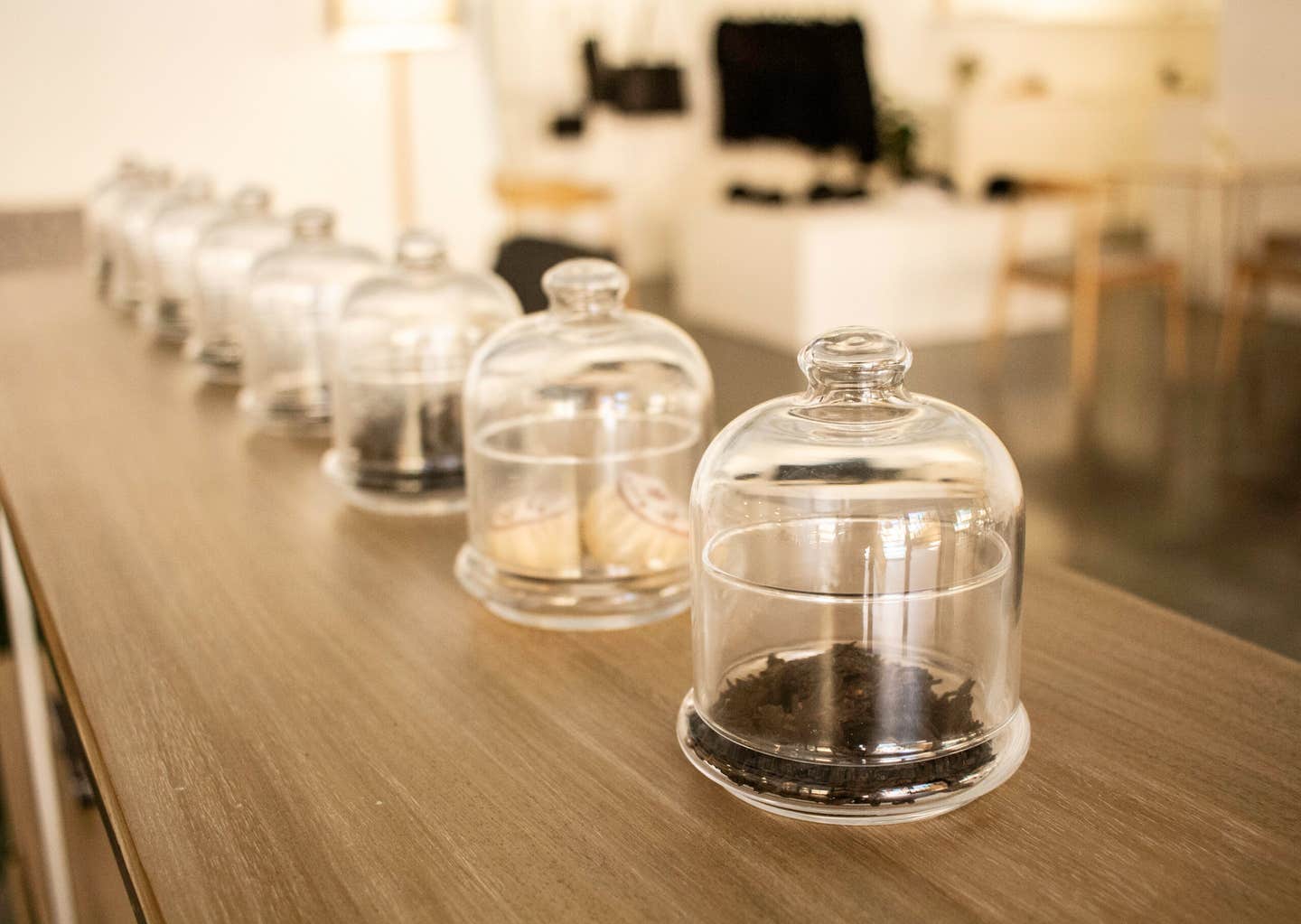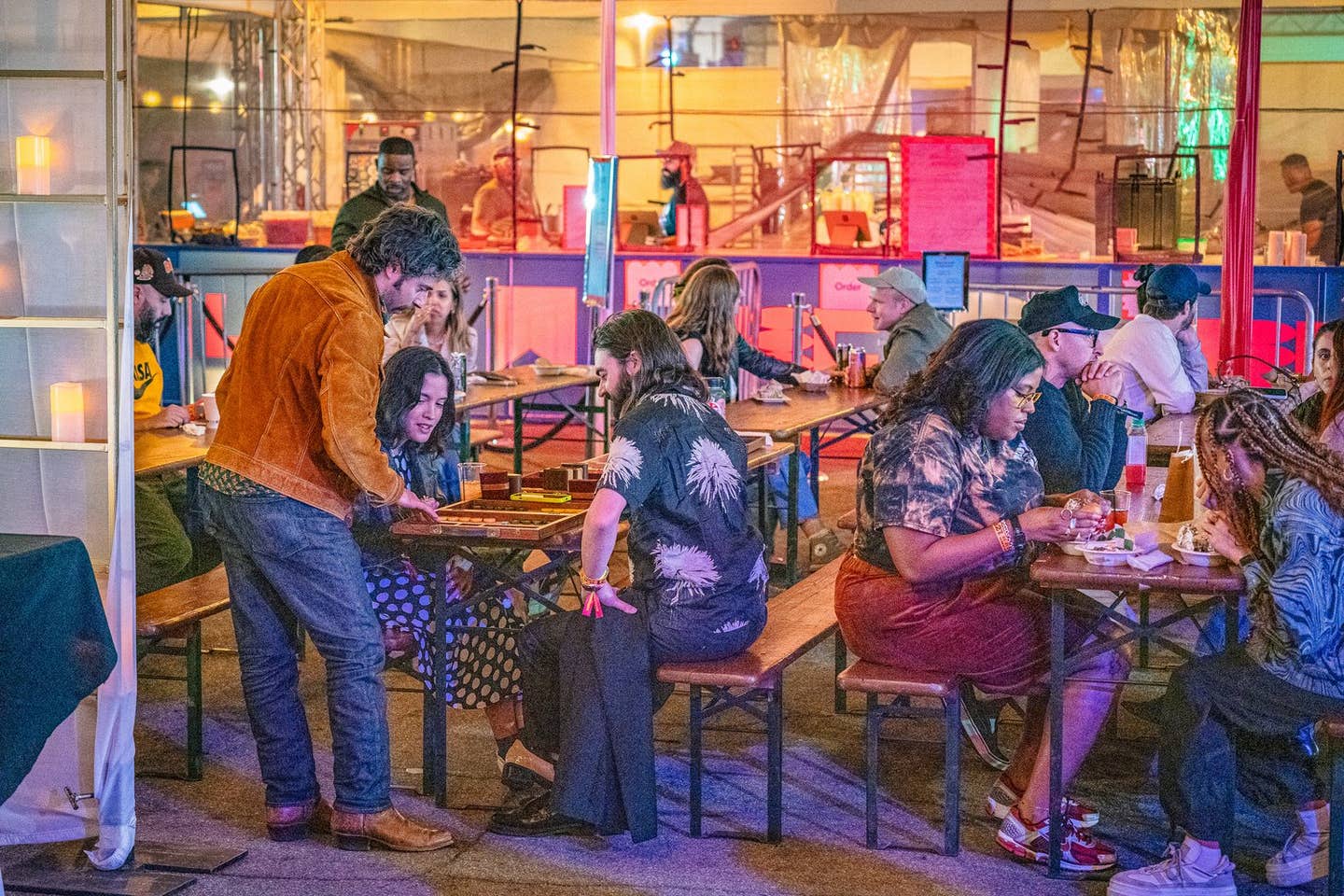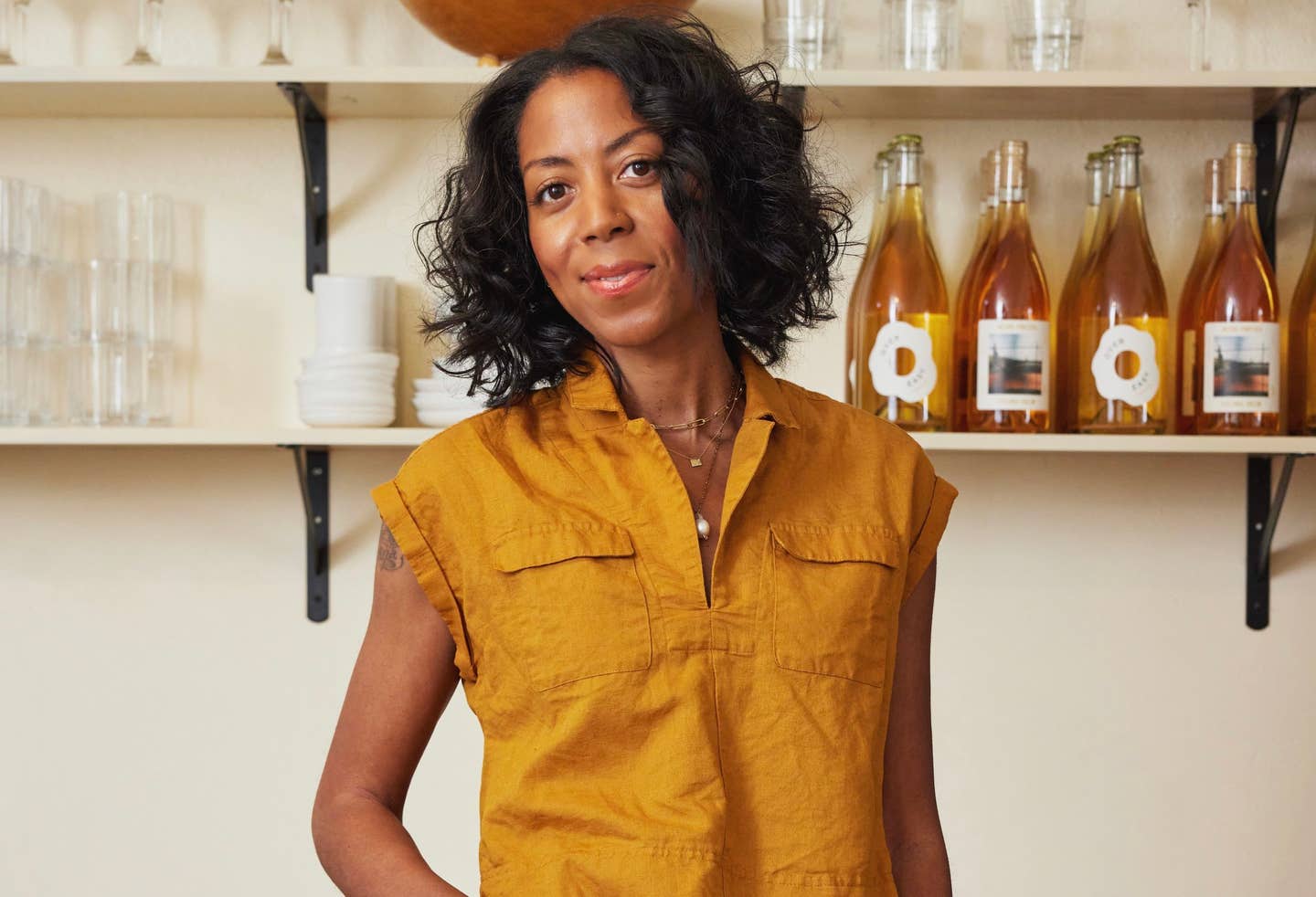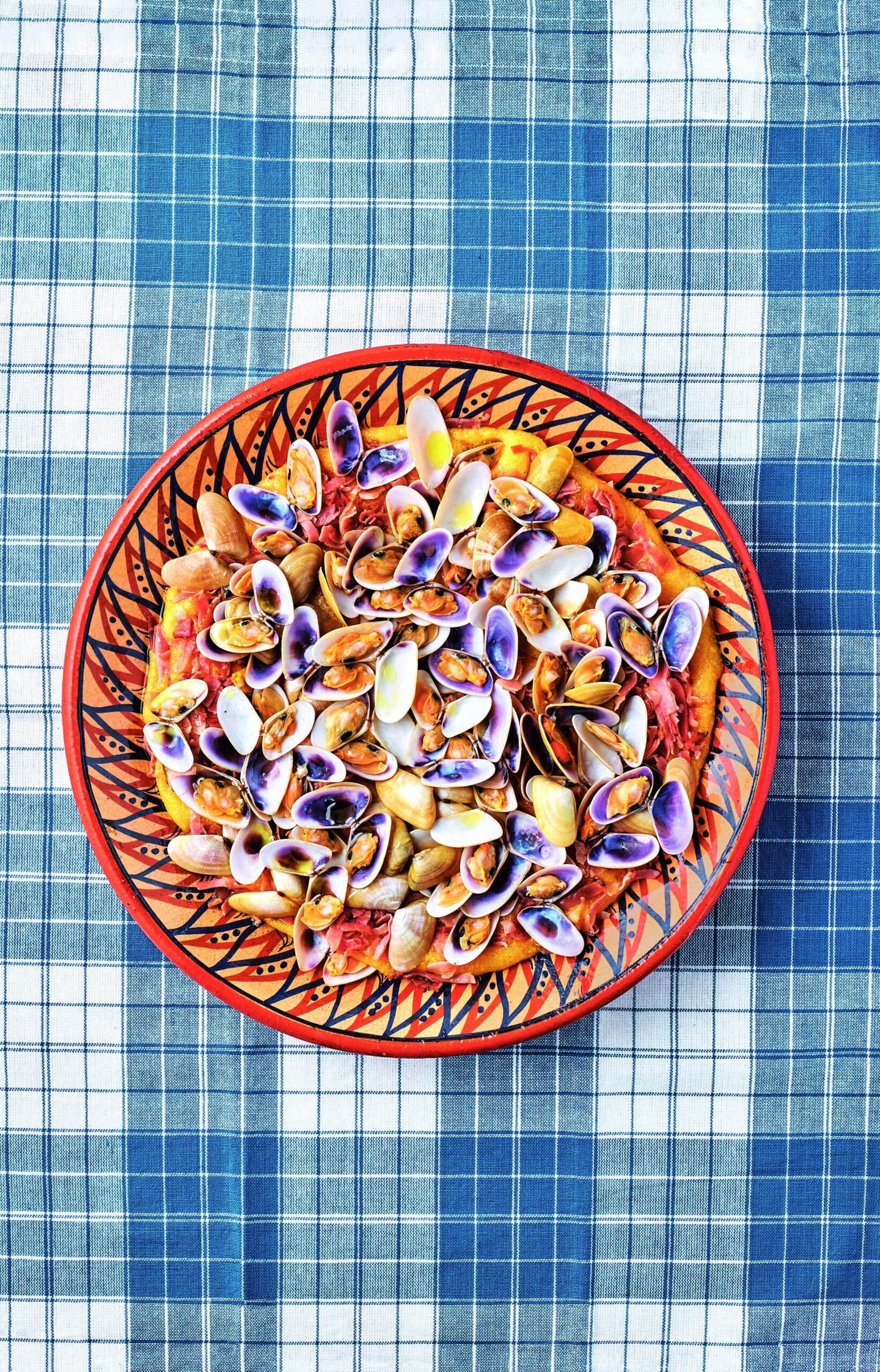The New Supper Club? Turkish Breakfast
One circular table, thirty ingredients, and ten open seats became the hottest restaurant no one knew, stranded somewhere deep in the open desert at Burning Man in 2019. In-keeping with the festival’s gift-giving tradition, designers and Istanbul natives Alper Nakri and Deniz Hotamisligil built a mobile kitchen and dining room on wheels to offer the Burning Man playa what they knew how to do best: Turkish breakfast. The first ten guests spanned the ages of 17 to 85-years-old, from Australia to Sweden, students, and company executives. They had nothing in common except the time and space to connect and discover that they were all more similar than they had thought. Nakri and Hotamisligil flipped the table ten times that week and before they knew it, they had the first one hundred members of what had become, right then and there, the Turkish Breakfast Club (also known as TBC).
One circular table, thirty ingredients, and ten open seats became the hottest restaurant no one knew, stranded somewhere deep in the open desert at Burning Man in 2019. In-keeping with the festival’s gift-giving tradition, designers and Istanbul natives Alper Nakri and Deniz Hotamisligil built a mobile kitchen and dining room on wheels to offer the Burning Man playa what they knew how to do best: Turkish breakfast. The first ten guests spanned the ages of 17 to 85-years-old, from Australia to Sweden, students, and company executives. They had nothing in common except the time and space to connect and discover that they were all more similar than they had thought. Nakri and Hotamisligil flipped the table ten times that week and before they knew it, they had the first one hundred members of what had become, right then and there, the Turkish Breakfast Club (also known as TBC).
Having grown up in Turkey, the experience itself was innate to Nakri and Hotamisligil. Of course they’d have a circular table, colorful textiles, tea on flow, an abundance of Turkish delights, sujuk (a dry, spicy fermented sausage), eggs, olives, fresh breads, local cheeses, homemade jams. But there was something that resonated deeply with their guests on the playa and it wasn’t just the food. What Nakri and Hotamisligil had created was a community with its own culture by means of a culinary experience— a table for ten that welcomed parties of one with no menu, no expectations, no pretenses, and nowhere else to be.
“Hold on Alex, we’ll get there,” Hotamisligil kept reiterating during our interview at Canyon Coffee. I was so eager to dive into the details. I wanted to know what Turkish breakfast was like in Istanbul, the recipe for their Menemen spiced scrambled eggs, and where to get the real stuff here in LA. But, to Nakri and Hotamisligil, it was really important that I understood what it was like to grow up in Turkey. Their lifestyle was built around community, which was strengthened by their allegiance to their hometown. Unlike in the States, Turkish people don’t typically move away from home. Their friendships are deeply intertwined with their immediate family and follow them throughout each phase of life. The pace is slower, which gives them more time to spend around the table. From how they described it, it seemed like their culture was made for an experience like Turkish breakfast, or perhaps the tradition was in some way responsible for creating their culture in the first place.
The tradition of Turkish breakfast, known as “kahvalti,” has a long and rich history that dates to the Ottoman Palace, known for its opulence, grandeur, and skilled team of chefs. As the Ottoman Empire expanded, so did the breakfast table. It became a canvas to flaunt the best ingredients from each region— butter, cornbread and anchovies from the Black Sea, tahini and grape molasses from the Southeast, olive oil from the Aegean region and pastries from Central Anatolia. To this day, sourcing the best ingredients, near and far, is crucial to Turkish breakfast, which is typically enjoyed on the weekends and holidays. It’s a celebration of community, fertility, and abundance— a practice of re-gifting our loved ones with the gifts of the land.
As two of the handful of students in their graduating class that took the leap to the States for college, Nakri and Hotamisligil felt the absence of their community in a strong way. They found that the individualistic and nomadic culture that is the hallmark of our society here made friendships feel temporary and fleeting— everyone seemed to be simultaneously running to and away from the next thing. In many ways, Turkish Breakfast Club was an antidote to our fast-paced culture and a practice in being present in one place. Nakri and Hotamisligil kept coming back to the breakfast table as a portal to revisit the parts of Turkey they missed the most and to share the flavors of their hometown with their equally vibrant and growing community of over 2500 members, and now you.
A Guide to Turkish Breakfast
Building Community
At TBC, community comes first. Each guest is seen as a co-creator of the experience with the guidance of their hosts. Nakri and Hotamisligil create a strong culture of inclusion and belonging; they welcome each guest as family, and are constantly reading the room, greeting tables, introducing guests to one another, and posing conversation topics to ignite meaningful conversations. When they bring out dishes, they encourage guests to serve the person next to them, modeling the kind of warmth, curiosity, and kindness at the core of the TBC community.
Setting the Table
A typical Turkish breakfast spread exists in endless combinations and empowers guests to create and share their own version of the perfect bite. The table often includes (but is not limited to):
Tea and Coffee: strongly brewed and served in small tulip glasses
Freshly baked bread: simit (circular sesame bread), bazlama flatbread and ekmek (bread loaves)
Eggs: soft-boiled, fried, or scrambled with tomatoes, green peppers, and spices (Menemen)
Local Jams and Honey: sour cherry, fig, rosehip, to name a few. Served with bread and kaymak (clotted cream)
Cheese: varieties are vast and include beyaz peynir (white cheese), kaşar (yellow cheese), and tulum (goat cheese) often served with cured meats, seasonal vegetables, and fresh herbs
Olives: black and green, often marinated in olive oil and herbs, sometimes grilled
Pastries and Baked Goods: börek, gözleme, katmer, baklava, and kete— variations of layered and flaky pastry with savory and sweet fillings like cheese, spinach and minced meat, or pistachios, walnuts, honey, and clotted cream, respectively
Creating Space
As furniture and product designers (and chefs), Nakri and Hotamisligil have a keen sense of spatial design that catalyzes connection. Though low tables and floor seating aren’t traditionally characteristic of Turkish Breakfast, Nakri and Hotamisligil prefer pillows to chairs for their intimate, childlike, and cozy quality. The table itself, which the two made by hand, is five feet in diameter so that each attendee could reach across half the table with one arm’s length. The space is filled with traditional textiles, pillows, and umbrellas to raise the spirit of the gathering in tandem with the dress code: “colorful and festive.”
Serendipity, Surprise & Delight
In Turkey, it isn’t uncommon to be handed fresh fruit or invited to sit at a table with strangers. The spirit of gifting and serendipity is integral to Mediterranean cultures and Burning Man, where TBC finds inspiration. There’s no menu, guest list or schedule of events. Rounds of fresh bread, eggs and sweets are brought out on flow and live musical performances pop up unexpectedly. A ticket to TBC requires trust and permission to be surprised.
Bending Time
At one point during our interview, I looked around and all the other tables and chairs had been packed up. We had closed out the place, and I completely missed a call I had on the calendar. It seemed to me that their special sauce was the ability to make time disappear over warm conversations and a plate full of pastries. Like TBC, the interview was an excuse to gather, but our meeting was really about exchanging stories, building trust, and enjoying a lovely afternoon in Echo Park together. Nakri and Hotamisligil know how to bend time, and in a fast-paced city like LA, their philosophy is infectious, inspiring, and a true gift— within and beyond the breakfast table.
Editor’s Note: Nakri and Hotamisligil adds that you can reach out to @turkishbreakfastclub about where to source ingredients.
P.S.: Want more dining clubs in LA? Check out the hottest supper club at the oldest Italian-American society.



